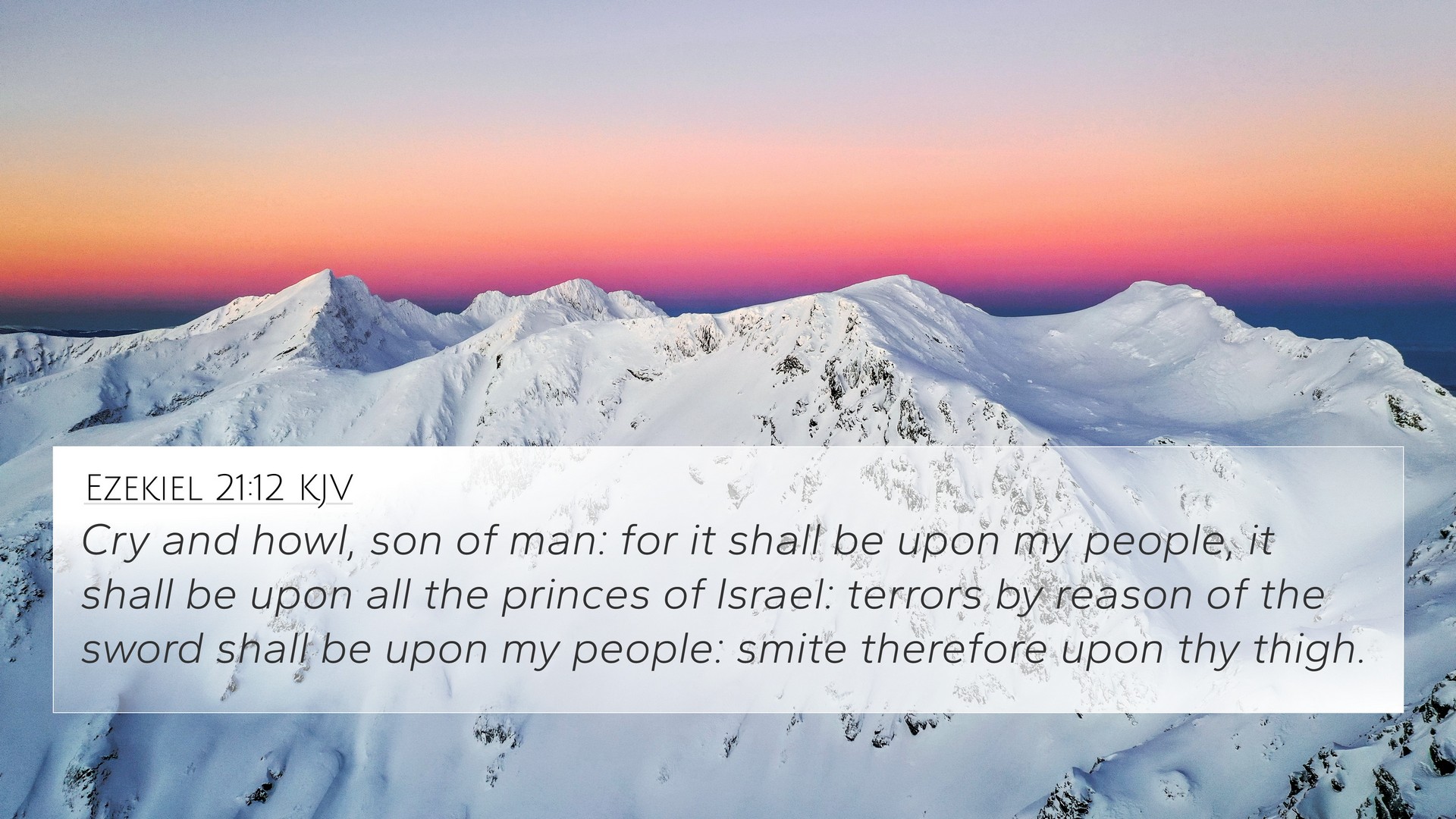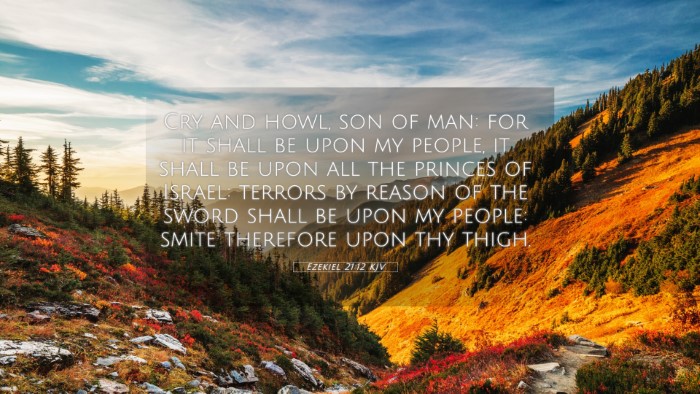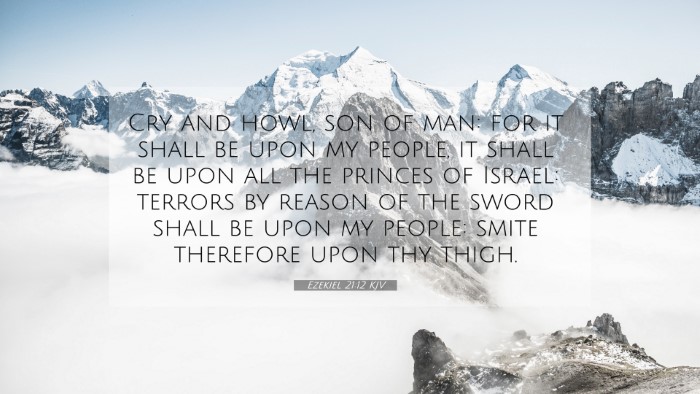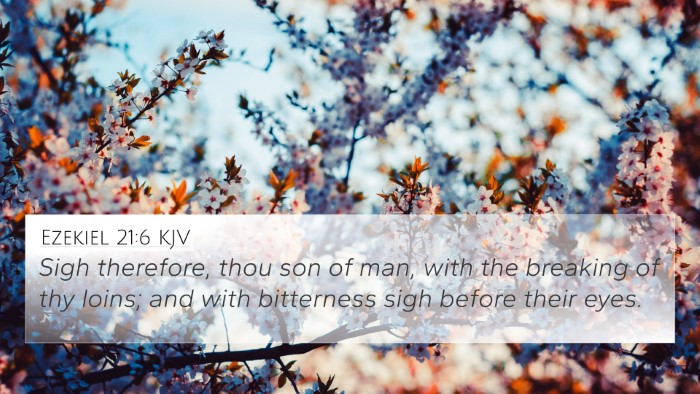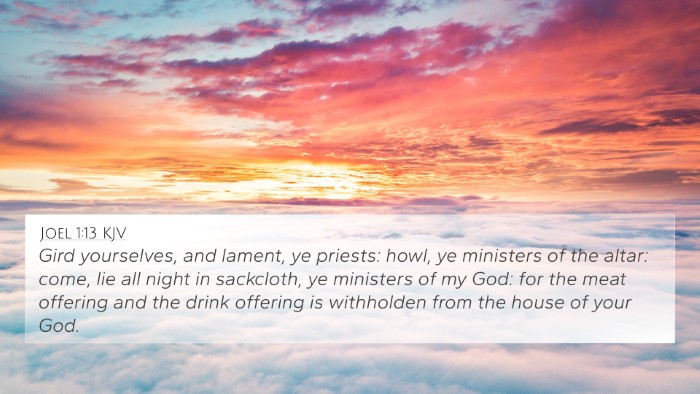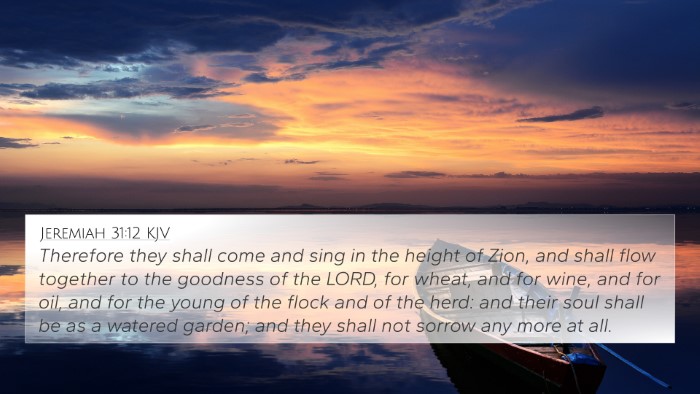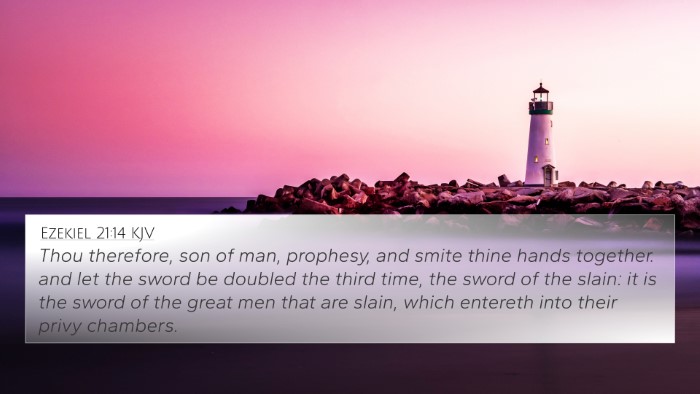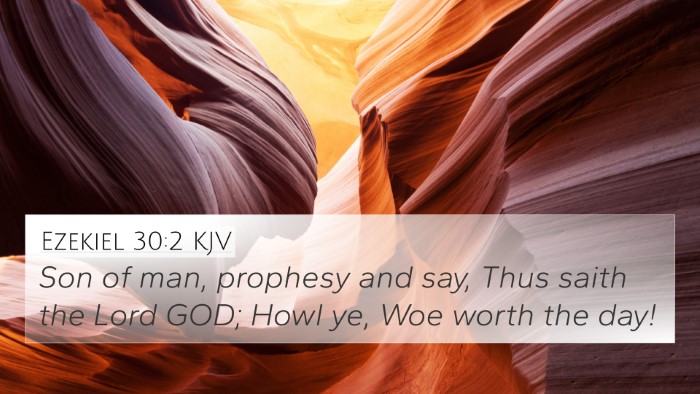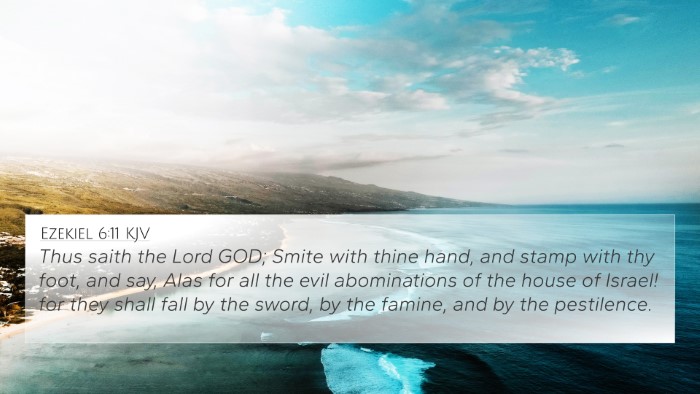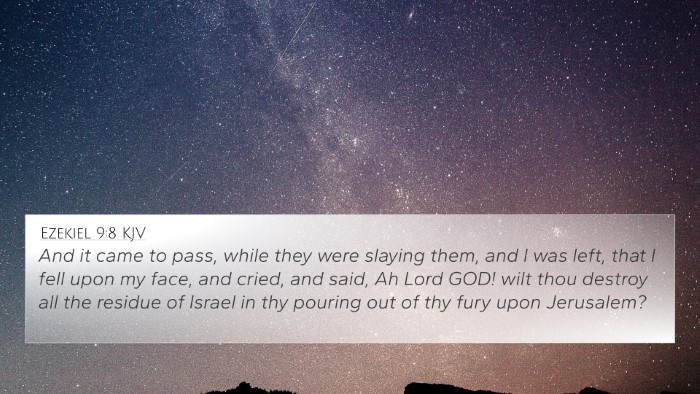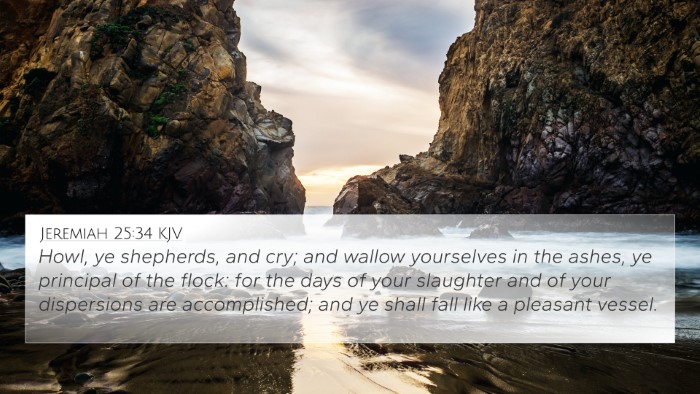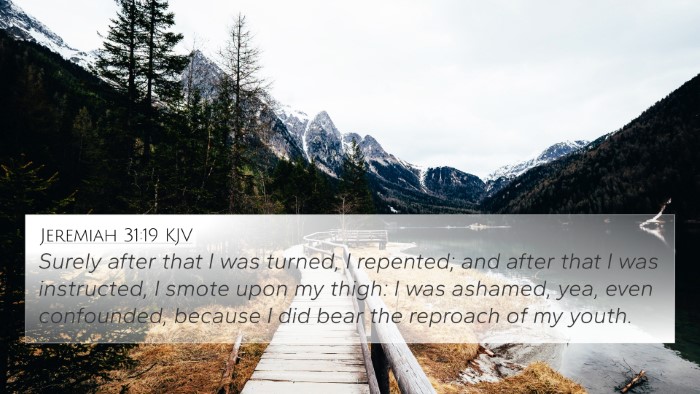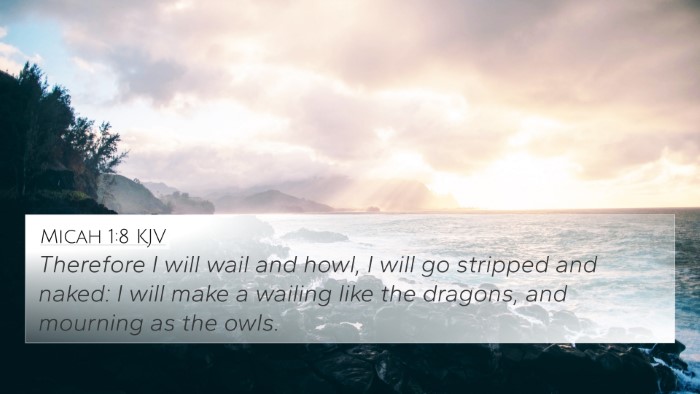Ezekiel 21:12 Meaning and Interpretation
Ezekiel 21:12 states: "Cry and wail, son of man; for it shall be upon my people, it shall be upon all the princes of Israel: terror by reason of the sword shall be upon my people: smite therefore upon thy thigh."
This verse carries significant prophetic weight, wherein God communicates through His prophet, Ezekiel, a deep sense of mourning and impending doom over His people due to their disobedience. Below, we will summarize the interpretations of this verse based on insights from notable public domain commentaries including those by Matthew Henry, Albert Barnes, and Adam Clarke.
Summary of Interpretations
Matthew Henry's Commentary
Matthew Henry emphasizes that this verse reflects the severity of God's judgment upon Israel for their transgressions. The call to "cry and wail" indicates profound sorrow and urgency for repentance. He suggests that this lamentation serves to awaken the people to the reality of their sins and the resultant consequences. Henry highlights how the "sword" symbolizes both the literal threat of physical destruction and the spiritual turmoil within the nation. The action of smiting upon the thigh is a gesture of deep emotional distress, as one would do to signify pain and seriousness about the situation.
Albert Barnes' Notes
Albert Barnes provides an interpretation that focuses on the prophetic role of Ezekiel as a messenger of God's impending judgment. He notes that the verse illustrates the communal nature of judgment, as it will affect both the leaders ("princes") and the people of Israel. Barnes indicates that the "terror by reason of the sword" signifies impending invasion and violence, urging a corporate mourning over sin. The act of smiting the thigh is viewed as a sign of grief and defeat faced by the nation, and Barnes calls attention to the emotional weight carried by the prophet, as he bears the burden of this message.
Adam Clarke's Commentary
In Clarke’s examination, he expands on the phraseology used in the verse, particularly the implication of "terror by reason of the sword." He reinforces the seriousness of God's warning and emphasizes that the message should invoke fear and panic amongst the people, pushing them towards repentance. Clarke interprets the smiting upon the thigh as both a cultural expression of mourning and a physical manifestation of the heart's distress over the sinful state of the nation.
Connections and Cross-References
Ezekiel 21:12 resonates with various other scriptures throughout the Bible. Here are some relevant cross-references that provide deeper insight into the themes of judgment and repentance:
- Jeremiah 4:19-20: Expresses similar emotional turmoil and profound distress over impending judgment.
- Lamentations 1:18: Reflects the desolation of Jerusalem, aligning with themes of corporate mourning and judgment.
- Isaiah 22:4: Invites a similar call to weeping and mourning over the condition of the people.
- Micah 7:1: Highlights personal and community sorrow due to sin, echoing the sentiment in Ezekiel.
- Ezekiel 2:10: Conveys the burden of God’s words which include sorrow for the waywardness of His people.
- Matthew 24:7: Points towards the dread of wars and conflicts, akin to the "sword" imagery.
- Luke 19:41-44: Depicts Jesus weeping over Jerusalem, showcasing the deep sorrow for the city’s fate.
- Revelation 14:10: Mentions the consequences of defiance against God, aligning with the prophetic warnings of Ezekiel.
- Romans 2:8-9: Discusses the judgment upon those who do evil, fitting into the overarching theme of consequences for sin.
- Hebrews 10:31: Warns about the fearful consequences of falling into the hands of the living God, complementing the somber tone of Ezekiel's message.
Thematic Considerations
The main themes surrounding Ezekiel 21:12 revolve around divine judgment, communal mourning, and prophetic urgency. The emotional state expressed is not only personal but extends to national awareness and accountability before God, reflecting a deep inter-Biblical dialogue on sin, consequence, and redemption that flows through the scriptures.
Tools for Bible Cross-Referencing
To explore these connections and the thematic links further, various tools for Bible cross-referencing can enhance your study. Here are some suggestions:
- Utilizing a Bible concordance to locate terms and themes.
- Employing a Bible cross-reference guide for detailed studies on specific verses.
- Engaging in cross-reference Bible study sessions for group discussions.
- Using a Bible reference resource that categorizes themes and topics exhaustively.
- Consulting comprehensive Bible cross-reference materials to deepen understanding.
Conclusion
Ezekiel 21:12 serves as a powerful reminder of the weight of sin and the call to repentance. Understanding the connections between this and other biblical passages can enrich one’s faith journey and enhance practical application in daily life. As believers encounter these themes in scripture, they are prompted to reflect and respond to God's urgings throughout the Biblical narrative.
